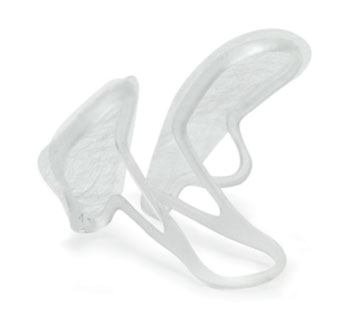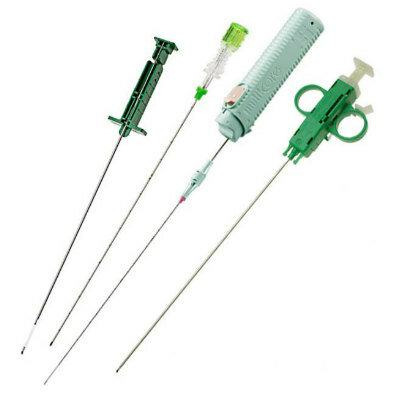Nasal Filter Alleviates Hay Fever Symptoms
By HospiMedica International staff writers
Posted on 26 Mar 2014
A small filter the size of a contact lens could make life easier for some of the estimated 500 million people worldwide who suffer from seasonal allergic rhinitis (hay fever).Posted on 26 Mar 2014
Under development by researchers at Aarhus University (Denmark), the Rhinix mini-filter is designed to be inserted in both nostrils simultaneously, and can be used both in professional and social settings, as well as during sleep. Depending on the filter's density, it can block specific particles in the air, including pollen from grass, which is one of the most frequent causes of hay fever. When inserted correctly the filter is nearly invisible.

Image: The Rhinix mini-filter for nasal insertion (Photo courtesy of Aarhus University).
The researchers conducted a single-center, randomized placebo-controlled crossover clinical trial in an environmental exposure unit (EEU) at Aarhus University on 24 subjects with proven seasonal allergic rhinitis due to allergy to grass. A total nasal symptom score (TNSS), consisting of nasal congestion, nasal discharge, nasal itching, and sneezing was used as the primary outcome measure. TNSS was rated nine times during each study day and evaluated based on the difference in daily TNSS and maximum daily TNSS.
The results showed that Rhinix reduced daily TNSS by 21%, daily sneezing by 45%, maximum itching by 46%, and maximum sneezing by 38%, when compared to placebo. Conversly, Rhinix showed a nonsignificant reduction in the primary efficacy endpoint of difference in maximum TNSS, with a mean reduction of 14% and median reduction of 33% when compared to placebo. The nasal filters were well tolerated and measurements showed that there was no difference in airflow between the placebo filter and the Rhinix filter. The study was published online on March 3, 2014, in the Journal of Allergy and Clinical Immunology.
“We will test Rhinix on a larger scale in collaboration with the Danish Patient Organization Asthma-Allergy Denmark later in the year,” said seniorstudy author Prof. Torben Sigsgaard, MD, PhD. “But the preliminary tests in our allergy chamber show that the filter can both alleviate typical symptoms and that you will not experience unacceptable discomfort when using it.”
Allergic rhinitis is an allergic inflammation of the nasal airways. It occurs when an allergen, such as pollen, dust, or animal dander is inhaled by an individual with a sensitized immune system. In such individuals, the allergen triggers the production of the antibody immunoglobulin E (IgE), which binds to mast cells and basophils containing histamine. When caused by pollens of any plants, it is called pollinosis, and, if specifically caused by grass pollens, it is known as hay fever. While symptoms resembling a cold or flu can be produced by an allergic reaction to pollen from plants and grasses, including those used to make hay, it does not cause a fever.
Related Links:
Aarhus University














